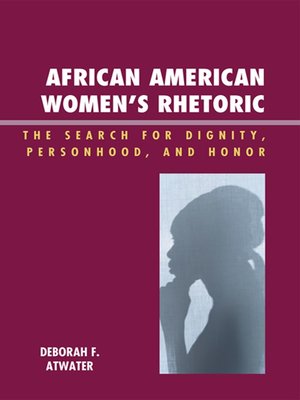African American Women's Rhetoric
ebook ∣ The Search for Dignity, Personhood, and Honor
By Deborah F. Atwater

Sign up to save your library
With an OverDrive account, you can save your favorite libraries for at-a-glance information about availability. Find out more about OverDrive accounts.
Find this title in Libby, the library reading app by OverDrive.



Search for a digital library with this title
Title found at these libraries:
| Library Name | Distance |
|---|---|
| Loading... |
African American Women's Rhetoric: The Search for Dignity, Personhood, and Honor deals with the rhetoric of African American women from enslavement to current times, examining slave narratives and contemporary print, music, and other media surrounding the lives of African American women. Covering a variety of specific women and their rhetoric within the context of a historical period, the book provides central themes and strategic and social concerns of African American women and their environment. It frames, in some, cases, the rhetoric of contemporary women in politics and other fields of prominence-including Condoleeza Rice and Barbara Lee, among others.
Deborah F. Atwater explores how African women today who engage in speech in the public sphere come from a historical line of active women who have been outspoken in politics, education, business, and various social contexts; heretofore, these women have not been studied in a comprehensive manner. Specifically, how do these African American women discuss themselves, and-more importantly-how do they represent who they are in various communities? How do these women persuade their diverse audiences to value what they say and who they are?African American Women's Rhetoric will be an invaluable contribution to upper-division undergraduate and graduate courses in Rhetoric, African American Rhetoric, History, and Women's Studies.
Deborah F. Atwater explores how African women today who engage in speech in the public sphere come from a historical line of active women who have been outspoken in politics, education, business, and various social contexts; heretofore, these women have not been studied in a comprehensive manner. Specifically, how do these African American women discuss themselves, and-more importantly-how do they represent who they are in various communities? How do these women persuade their diverse audiences to value what they say and who they are?African American Women's Rhetoric will be an invaluable contribution to upper-division undergraduate and graduate courses in Rhetoric, African American Rhetoric, History, and Women's Studies.







